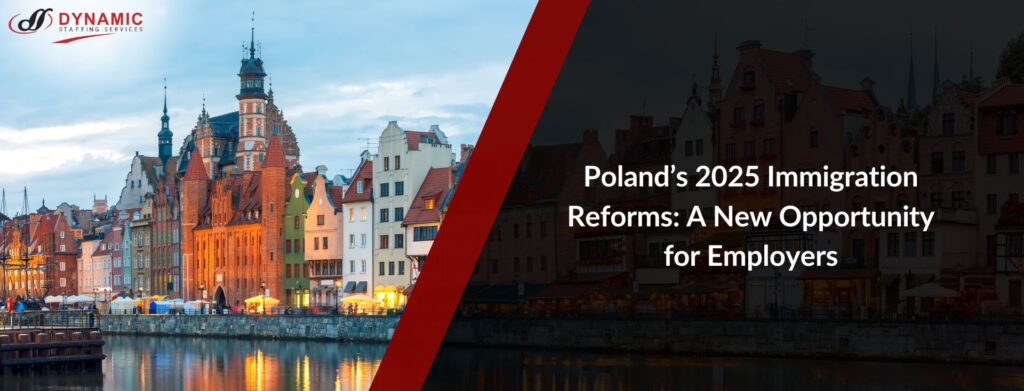Although it’s not the most significant result of the epidemic or the war in Ukraine, these several financial shocks have made it incredibly difficult to predict how Brexit would affect the economy. Brexit is still a big deal.
They have effectively stifled any chance for logical reasoning in the public disclosure that passes for discussion of the subject. Overall, these unintentional defenses of inflation and the impending recession favor the Leave/Brexit side of the debate. Everything that seems bad now can be linked to Vladimir Putin, the Coronavirus, or its after-effects.
It will occasionally be the case; the rise in prices for food, gas, and energy is largely due to the disruption brought on by Putin’s conflict. The expense of the Covid furlough plan is significantly influenced by the UK’s astronomically high national debt. A serious scarcity of semiconductors from China and Taiwan has led to a rise in the price of electronics and cars and a reduction in their availability.
Therefore, many of the statistics discussed on many of the statistics changeovers only, as the UK’s a little quick in the G7 last year because it declined more during the pandemic. It was because the UK has a sizable hospitality industry and the additional difficulties that Brexit presented for exporters.
The UK could have the worst recession in the next few years. Germany’s inflation rate is higher than the UK’s. This difference can be attributed to Russia’s dependency on energy.
Also, you can read, How Employees became “Unsackable” amid an Impending Recession to know more.
The UK has the lowest unemployment rate since 1974, but on the flip side, there are labor shortages, strikes, and rising wage costs. Interest rates on UK debt are higher than they should be, which has less to do with Brexit and more to do with the lingering effects of the Truss-Kwarteng dash for growth. Even in the most stable times, which are not now, economics is a hard business.
In order to fully understand Brexit, it is optional to compare the UK to other nations or even to previous British trends before Brexit. There are optionally special circumstances surrounding these comparisons for them to offer more than flimsy talking points.
That is a false statement. The web was beginning to revolutionize commerce, and China impacted the global economy. In actuality, using it is the best course of action. If the UK were still a member of the EU, the referendum never took place, or we had chosen to remain, you should imagine how things are today.
So if food inflation is higher in the EU than in the UK, for instance, it may be due to differences in energy and transport. If the increased expenses of doing business with the EU after Brexit hadn’t been imposed, the US inflation might have been lower.
According to the scenario, this increased UK food costs by about £6 billion in the two years leading up to the end of 2021. According to estimates, Brexit raised inflation by 6% over two years or 3% annually. Of course, the poorest households are most affected by this inflation.
Even while such exercises grow more dangerous, we are further away from the 2016 referendum. It is still possible to have an idea because most of the transition to fill Brexit was only accomplished on January 1, 2022.
Fortunately, several astute economists have developed “doppelganger” models of the UK economy to uncover the implications of Brexit, and they are all detrimental. A 4% decline in UK productivity, which essentially translates to a 4% decline in GDP, is what the independent but official Office for Budget Responsibility projects. You may do the arithmetic on this, but it equates to an average real-terms 4% reduction in your living standards.
Read this: How can Britain overcome the skilled worker shortage post-Brexit?
You will suffer closer to 100% loss if you lose your employment. If you have bargaining leverage, your pay cut may be smaller, or your salary may even increase if you’re in a job scarcity. The majority will, however, be disappointed, and public services will also suffer.
Other people have darker outlooks. The Centre for European Research (CER) estimates at 5.2%. Say £125 billion a year is the amount of output and money lost. We would not need the squeeze in the autumn statement if we kept the cash.
In comparison to what it would have been had the UK remained in the EU, investment is down 13.7%, according to the CER. Long-term considerations are important because productivity is increased by investing in new technology, procedures, and working methods. Productivity is the foundation for a consistent rise in real wages and living standards.
Britain will eventually lose its competitive edge without such investments and become poorer. It is a destructive downward spiral that uncannily resembles what occurred in the 1970s. And according to the CER’s conclusion, a smaller economy necessitates greater taxes to pay for welfare and public services. The Office for Budget Responsibility claims that the long-term effects of Brexit will be worse than those of Covid. Our calculations back up that assertion.
Even with economics, Brexit isn’t rocket science. Models and projections make logic. Increasing trade barriers raises costs and complicates exports. Due to port delays, our estimates suffered major market losses.
A labor and skills deficit is almost certain if you restrict European workers’ freedom of movement while there is also a departure. Less domestically produced and imported investment will be seen if you lose simple access to the EU single market. If you cannot sell your products and services in the nearest market, it makes no difference what the corporation tax rates are and will be in the coming future.
Additional read: UK – Vacancies see a monthly decline but remain significantly above pre-covid levels: Apsco
If the Bcannocannotnt had delivered everything it promised, the UK might have profited in the long run. The loss of EU commerce may have been lessened by the advantageous free-trade agreements with nations with large and quickly expanding economies, such as the United States, India, and Russia.
But as of yet, that has not happened, and the likelihood seems remote in certain situations. The new trade agreements with Japan, Australia, New Zealand, and other countries will have a favorable effect.
There would have been a one-time reduction in “imported” inflation if UK tariffs had been drastically reduced. Costs may have been cheaper, and growth might have been higher if the UK had been permitted to renege on the terms of the EU trade agreement, even if this would have come at the expense of workers’ rights and the net zero targets.
But as of now, “Brexit means Brexit” – and Brexit truly means not what we would like it to mean but the hard reality of the UK-EU separation deal and the Northern Ireland protocol.
Major highlights of what if the UK remained in the European Union?
If the UK had stayed in the EU, Ireland would have to work with its other members to negotiate trade agreements with other countries. In particular, it would need to negotiate individual trade deals with Canada, Mexico, and China. Without the UK acting as a bridge between those blocs of countries and the EU itself, there is no way that these negotiations could take place quickly or effectively enough for them not to affect Irish businesses negatively.
If the UK had remained a part of the EU, its citizens would have been able to access healthcare in Ireland. They would have been able to do so by paying for their endurance or through public funds available to people who live there but not those in England or Scotland. However, since it is no longer part of the EU, this is no longer possible – so UK citizens here cannot get healthcare benefits from the EU either.
If the UK watermill were a part of the EU, there would be a way for people to move between countries with access to their social security systems. It could be a problem for those currently living in one country and working in another or visiting from time to time.
But it might not be so bad if you’re already paying into your own country’s system while living abroad—you wouldn’t have to give anything back. You’d only have to pay taxes on money earned within the EU/ UK borders and claim benefits as needed by law.
If the UK had never left the EU and remained a member, trade agreements between individual countries would have become more important than trade agreements made by whole blocks of countries.
Additional read: Americans No Longer Want To Work In These 10 Jobs
It is because there would be fewer treaties between nations as a whole. The EU already has its internal market, which means it can negotiate deals with other European countries on behalf of its 28 members.
However, this type of cooperation doesn’t work well when multiple parties are involved in negotiations—it makes sense for each country to negotiate its deals individually rather than try to coordinate them through an organization like the European Union.
As such, if Brexit hadn’t happened, we would see less cooperation across Europe when it comes time for individual nations’ leaders to decide what kind of relationship they want with each other going forward; instead, they’d likely focus on making deals with one another individually instead of working toward larger goals like allying against terrorism or climate change denialism.
Wrapping Up
We hope this blog has given you insight into what life would be like if Brexit had never happened. It’s still an exciting time to be alive, but we can’t help but wonder how things might have changed if Brexit doesn’t happen. No one sees the damage that Brexit has done, but by the end of the day, you will feel with time at the supermarket to date in your tax demand and payslips.
We have explained every aspect of Brexit and what would have happened if the UK had never left the European Union. We hope you have understood it all. Although many changes have occurred even after Brexit, we have tried to cover all.
Even after Brexit, there is a huge demand for skilled workers in the UK, and we at Dynamic Staffing Services can help you place in the UK. It is an interesting opportunity for you. If you are interested, contact us at +91-11-40410000 or email us at enquiry@dss-hr.com.
Are you looking for talent? Click here to Contact us | DSS HR and reach us now to get your business’s best construction and engineering recruitments. We’ll make the process efficient and fast for you!





